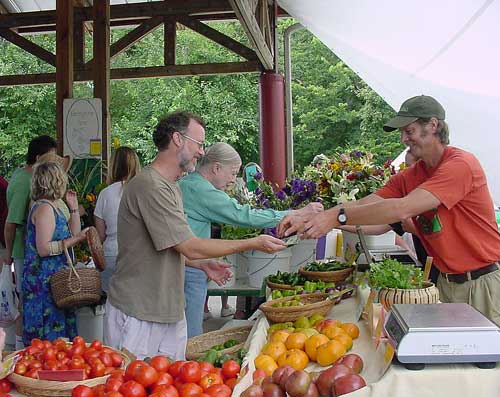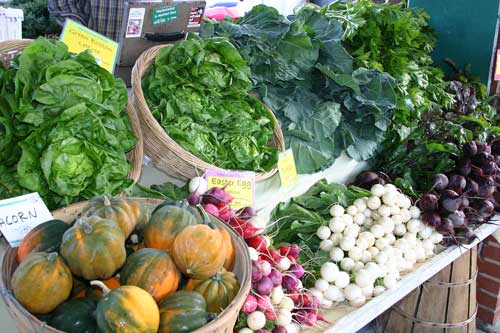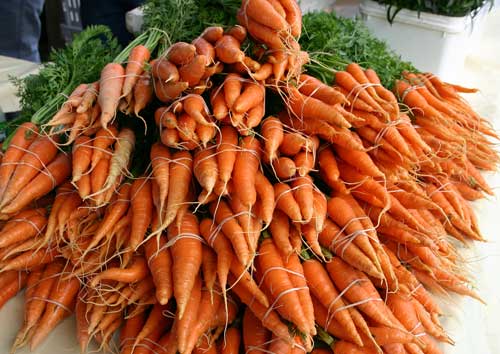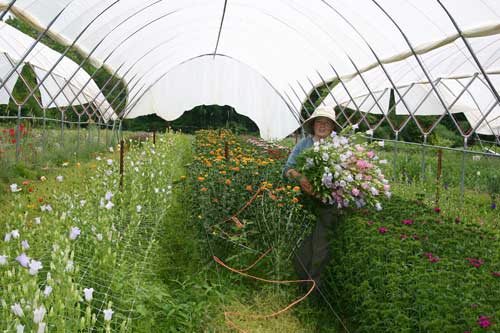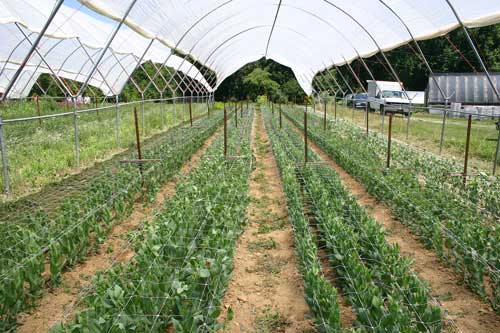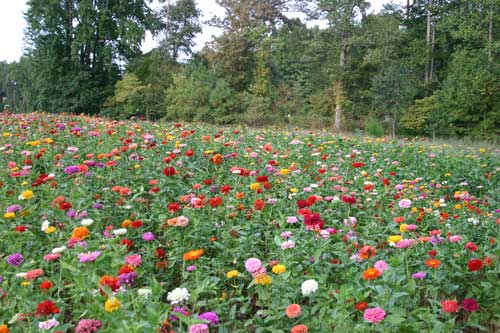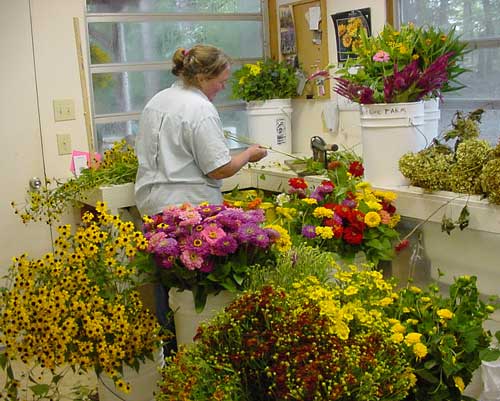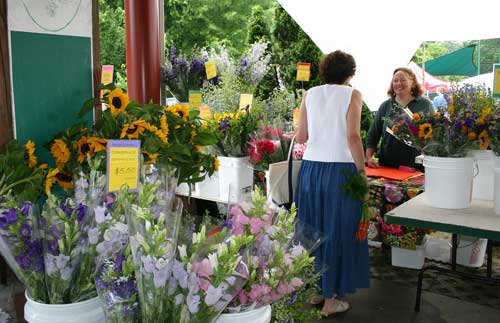Alex & Betsy Hitt Win National SARE Sustainable Agriculture Award
go.ncsu.edu/readext?172459
en Español / em Português
El inglés es el idioma de control de esta página. En la medida en que haya algún conflicto entre la traducción al inglés y la traducción, el inglés prevalece.
Al hacer clic en el enlace de traducción se activa un servicio de traducción gratuito para convertir la página al español. Al igual que con cualquier traducción por Internet, la conversión no es sensible al contexto y puede que no traduzca el texto en su significado original. NC State Extension no garantiza la exactitud del texto traducido. Por favor, tenga en cuenta que algunas aplicaciones y/o servicios pueden no funcionar como se espera cuando se traducen.
Português
Inglês é o idioma de controle desta página. Na medida que haja algum conflito entre o texto original em Inglês e a tradução, o Inglês prevalece.
Ao clicar no link de tradução, um serviço gratuito de tradução será ativado para converter a página para o Português. Como em qualquer tradução pela internet, a conversão não é sensivel ao contexto e pode não ocorrer a tradução para o significado orginal. O serviço de Extensão da Carolina do Norte (NC State Extension) não garante a exatidão do texto traduzido. Por favor, observe que algumas funções ou serviços podem não funcionar como esperado após a tradução.
English
English is the controlling language of this page. To the extent there is any conflict between the English text and the translation, English controls.
Clicking on the translation link activates a free translation service to convert the page to Spanish. As with any Internet translation, the conversion is not context-sensitive and may not translate the text to its original meaning. NC State Extension does not guarantee the accuracy of the translated text. Please note that some applications and/or services may not function as expected when translated.
Collapse ▲August 16, 2006
Photos and text by Debbie Roos, Agricultural Extension Agent.
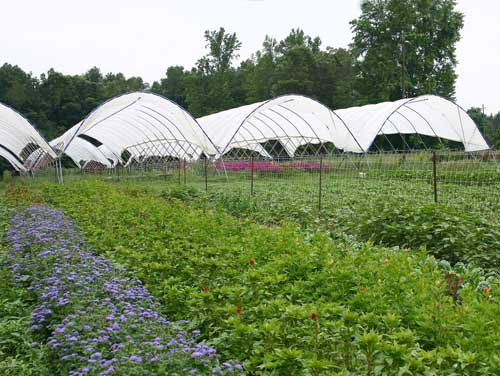
Cut flower crops planted in front of Haygrove tunnels. Haygroves are multi-bay tunnels that the Hitts use to grow high quality crops like heirloom tomatoes and cut flowers. The tunnels protect crops from the rain and allow the Hitts to control the amount of moisture going to the crops. Too much rain can ruin the quality of certain crops like melons and cut flowers and also speeds the spread of certain diseases in crops like tomatoes.
Alex and Betsy do not use pesticides on their farm and so they rely on cultural practices to help prevent pest problems from getting out of control.
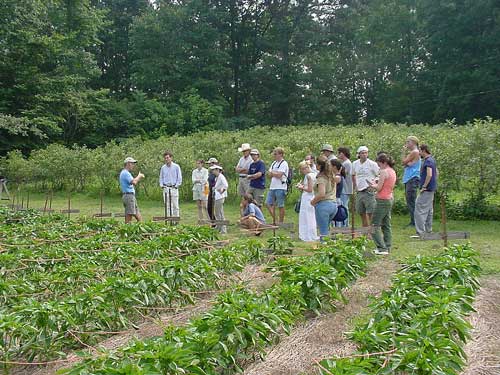
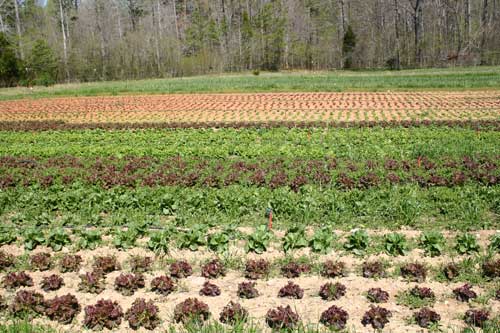
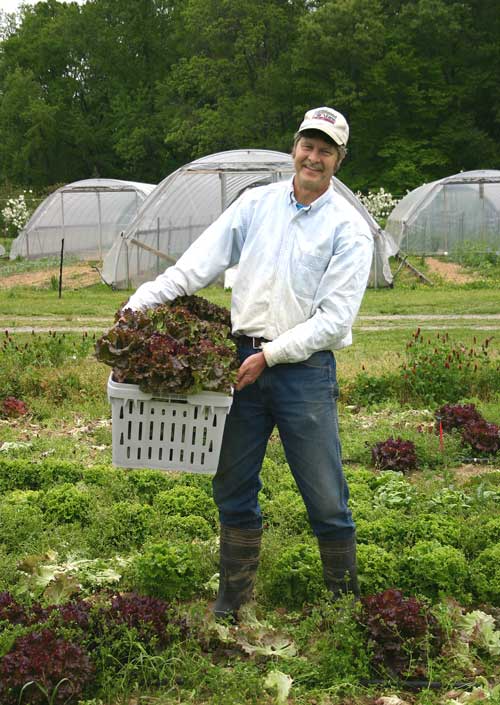
Alex harvests leaf lettuce in early May for wholesaling to Weaver Street Market in Carrboro. Moveable high tunnels can be seen in the background.
Click here for more photos and information on their sliding high tunnels.
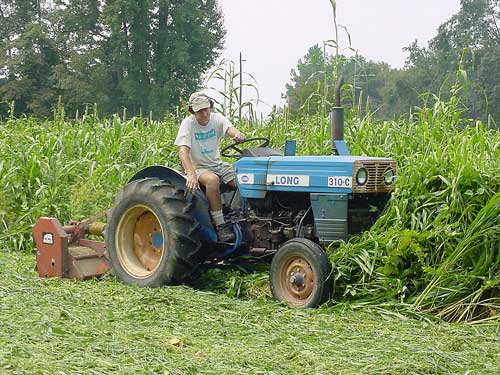
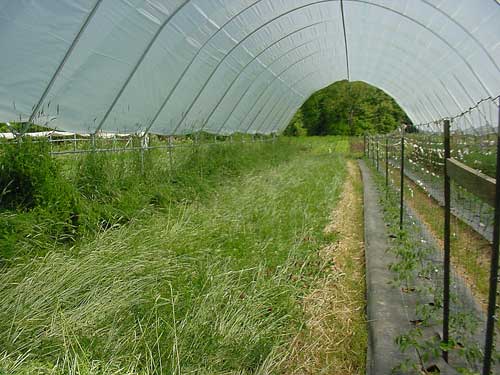
A fall-planted cover crop of rye, vetch, and crimson clover has just been rolled in late April to kill it in preparation for no-till tomato production under the Haygrove tunnel.
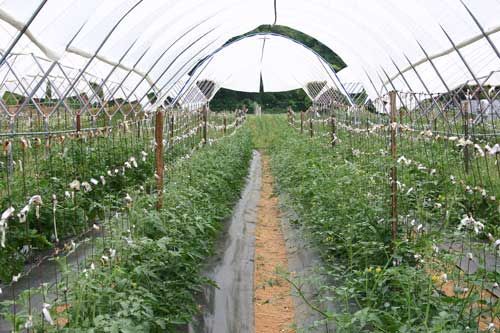
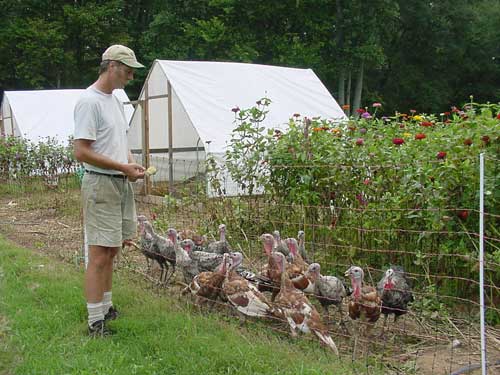
Alex visits with the young heritage-breed turkeys that they raise for the Thanksgiving market. They young poults arrive in May and are moved around the farm, confined by portable electric fencing, to forage on crops that have already been harvested. The turkeys feed on insects and grasses. They spend the night in the shelters (pictured at left in the photo) to protect them from predators.
Click here for more photos and information on their pasture-based turkey production.
